
If you have a baby, toddler or preschooler, you’ll soon need to think about them starting school. The rules around starting school in England can be confusing at times, so today we take a look through commonly asked questions around the topic to clarify matters. For instance, at what age do children in England legally have to begin school? Is ‘Reception Year’ the same as Year 1 (no, by the way), and is attending Reception Class even compulsory? All these questions and many more are answered in today’s post. Click any question to reveal the answer.
Q: What is Reception Year?
Reception Year is the year most children in England, aged from 4 to 5, start school. It’s a kind of ‘in-between’ year, coming after nursery/pre-school, but before primary school ‘Year 1’. Although Reception Year takes place at primary school, it’s the final year of the Early Years Foundation Stage (EYFS) and continues to use a primarily play-based learning approach. However, once Reception Year is complete, children move to Year 1 and begin the Key Stage 1 (KS1) curriculum, a more adult-led, formal learning approach by topic.
Q: Are there other names for Reception Year?
Reception Year is also referred to simply as ‘Reception‘ as well as being known as Year R, Year 0, or FS2 (for Foundation Second Year).
Q: Is Reception Year the same as Year 1 at school?
No — as outlined above, Reception Year is the year that precedes Year 1 so, numerically speaking, is Year 0 (see the question above for additional naming variants).
Q: How important is Reception Year?
The general consensus is that children who attend school in Reception Year benefit hugely. Having attended Reception, reading, writing, numeracy, social skills and many other abilities will have improved. Studies show that longer-term academic outcomes, including GCSE grades, are improved. Even children’s likely earnings will be higher later on as adults — such is the positive effect of a good Reception Year education.
Q: Is Reception Year compulsory?
Attending school in Reception Year is not compulsory, but is a great way for children to transition from preschool to school and to gain extra teaching. As such, it is something that the UK Government’s Department of Education (DfE) believes children should not miss out on.
Q: What age are children who go into Reception Class?
Children who go into Reception Year are usually aged between 4 and 5. However, there are occasional exceptions. An example would be where a child aged 5 has missed Reception – for whatever reason – and their parents have later made a successful application for their admission to Reception “outside of the normal age group”.
Q: What age is it compulsory for my child to go to school?
The law states that children reach Compulsory School Age on the earliest of the 31st of the August, December, or March which arrives on or after they reach the age of 5. They would then usually start school in the September term that follows (being the start of the nearest full school year).
That said, most children begin school earlier, at the age of 4, as we’ll see below.
Q: Can my child start school at the age of 4?
Yes. Despite the compulsory school age for full-time education in England being five, most children actually start school at the age of four. The majority of them will start in ‘Reception Year’ in the September term that follows their fourth birthday. However, whilst still four, they can attend part-time, full-time, or even part of the way through the year. Indeed, some schools have a staggered system for 4-year-olds joining Reception Year, starting them part-time at first. Others, however, require full-time schooling right from the start.
Q: Can I defer my child‘s school start date until they’re 5?
Yes*, for what are known as ‘Summer born’ children. That’s if your child’s birthday falls somewhere during the period 1 April and 31 August and, for example, you feel they are not ready for the challenges of school while they’re still 4. In such a scenario, you can defer their start until they’re five — in accordance with Compulsory School Age rules outlined earlier. Learn more about delaying your child’s school start here.
* Different rules apply to children who are subject to an Educational, Health & Care (EHC) plan.
Q: What school year does my child join if they don’t start school until five?
If your child doesn’t start school until they’re five, local authorities and schools will decide whether such children should start in Reception Year (a year later than most of their peers of the same age) or go straight into Year One with children of the same age. It all comes down to what they feel would be in the child’s best interests, taking into account any special circumstances or special needs. Parents can, however, make a request for such children to start school in Reception Year as opposed to Year 1 and this is known as ‘requesting admission out of the normal age group‘.
This is a tricky area because, on the one hand, the Government’s official view is: “… it is usually not in a child’s best interests to miss the teaching that takes place during the Reception Year, and … it should be rare for a child to start school in year 1.” However, on the other hand, the usual ‘default’ for children starting school at the age of 5, whose parents have not made a request for admission out of the normal age group, is that they would usually go straight into Year 1 — i.e. with children their own age.
Q: When should I apply for a primary school place for my child?
Irrespective of whether your child begins school at the age of 4 or 5, you need to apply for a place when they are still 3, or at the very latest when they have just reached the age of 4. More details about applying for school places are available in this guide.
Q: How do I find a state-funded school for my child?
If you live in England*, your local authority is responsible for education in state-funded schools. Click here to find the right local authority for your area and then navigate to the relevant schools section of their website. This will contain a whole host of information usually including a school search function, term dates, eligibility requirements, how to apply for a school place, plus a wealth of additional school- and education-related information.
Try to visit any contenders — most will have open days. Also, check Ofsted reports and school performance tables and try to speak with parents whose children have attended to gain some insights.
* Scotland, Wales and Northern Ireland have different processes. (∞).
Q: How do I find a private/independent school place for my child?
You can alternatively pay for your child’s education through a private (‘independent’) school by making enquiries directly with them. Research to find them online, try a search engine or ask around for recommendations.
Like state-funded schools, independent schools are also inspected and reports will be available through whichever organisation inspects them (about half of them are through Ofsted).
Q: Can I ‘home-school’ my child instead of sending them to school?
In many cases you can, if you so decide, teach your child at home instead of sending them to school. This is known as homeschooling or ‘Elective Home Education’ (EHE). If going this route, your child must be receiving a suitable, efficient, full-time education and be doing so from the age of five. You can home-school them full-time or educate them part-time at home and the other part at school, although some schools may not allow part-time school placements.
However, there are some scenarios where it’s not possible to home-school your child. Examples may include some children who are party to a ‘School Attendance Order‘, some children with SEN attending special schools, and children who have been deemed by the local authority not to be receiving suitable home education.
Q: How do special educational needs or disabilities (SEND) affect Reception Year places?
By law, schools must publish certain information on their official websites and this includes a special educational needs (SEN) information report. This must explain their individual policies in regard to eligibility and arrangements for children who have special educational needs and disabilities.
If you would like to suggest any additional questions on the topics of starting school and Reception Year, please let us know using the middle button below; many thanks.
Little Cedars is a High-Quality Nursery in Streatham
Little Cedars Day Nursery provides first-class weekday childcare services in Streatham

 Little Cedars is a wonderful childcare nursery located in Streatham in London’s SW16 area. As you can see via the logo on the left, we are rated by Ofsted as a ‘Good Provider’, so you know your baby, toddler or preschooler will be in safe and caring hands. We’ll ensure they receive the very best care and an early years education that will help them become the very best version of themselves. In this way, they’ll be school-ready by the time they leave us to begin in Reception Year at primary school.
Little Cedars is a wonderful childcare nursery located in Streatham in London’s SW16 area. As you can see via the logo on the left, we are rated by Ofsted as a ‘Good Provider’, so you know your baby, toddler or preschooler will be in safe and caring hands. We’ll ensure they receive the very best care and an early years education that will help them become the very best version of themselves. In this way, they’ll be school-ready by the time they leave us to begin in Reception Year at primary school.
To further explore the chance of a childcare place for your child at Little Cedars Nursery, please get in touch using an option below:

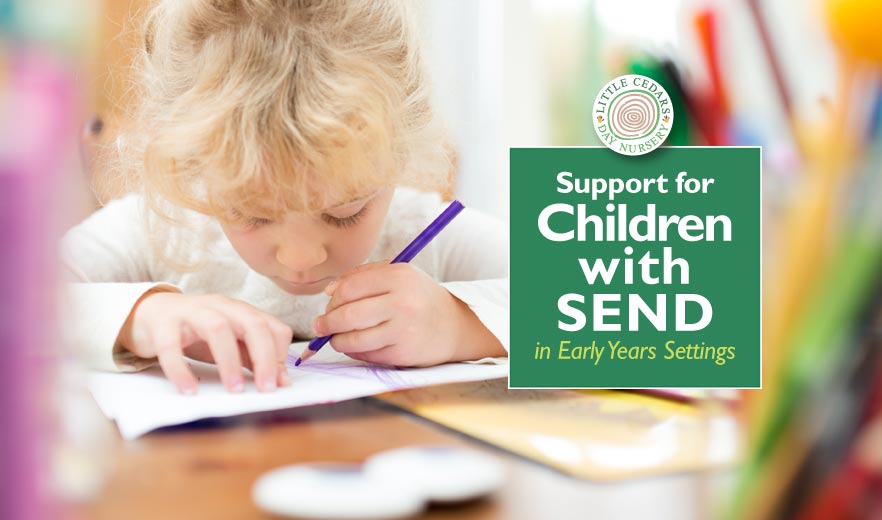
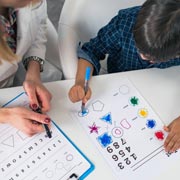 Identification of a special educational need or disability is, of course, the first step in being able to properly support a child with SEND. For this reason, good early years providers like Little Cedars Nursery will, as a matter of course, watch out for signs of things that might be challenging for children. As prescribed by
Identification of a special educational need or disability is, of course, the first step in being able to properly support a child with SEND. For this reason, good early years providers like Little Cedars Nursery will, as a matter of course, watch out for signs of things that might be challenging for children. As prescribed by  Support plans for suspected or confirmed special needs or disabilities are then discussed and custom-designed for the child. Such plans will be agreed between the child’s parents/caregivers, staff at the early years setting itself and any external specialists or professionals involved in the child’s care. Such programmes will be customised to suit the individual child’s specific needs and may include tailored activities, strategies, resources and so on. Formalisation of the support programme will allow all parties to pull in the same direction, working cooperatively for the benefit of the child.
Support plans for suspected or confirmed special needs or disabilities are then discussed and custom-designed for the child. Such plans will be agreed between the child’s parents/caregivers, staff at the early years setting itself and any external specialists or professionals involved in the child’s care. Such programmes will be customised to suit the individual child’s specific needs and may include tailored activities, strategies, resources and so on. Formalisation of the support programme will allow all parties to pull in the same direction, working cooperatively for the benefit of the child. In parallel to the SENCo at the child’s early years setting, local authorities also have their own Special Educational Needs Coordinator, known as the Area SENCo. They will also be integral to a child’s SEND support plan, helping with coordination between the local authority, the various parties involved in supporting the child, and in relation to any special funding requirements. If approved, special funding might be required, for example, for an additional member of staff tasked with giving one-to-one support to the child, or to fund extra learning resources and activities for them.
In parallel to the SENCo at the child’s early years setting, local authorities also have their own Special Educational Needs Coordinator, known as the Area SENCo. They will also be integral to a child’s SEND support plan, helping with coordination between the local authority, the various parties involved in supporting the child, and in relation to any special funding requirements. If approved, special funding might be required, for example, for an additional member of staff tasked with giving one-to-one support to the child, or to fund extra learning resources and activities for them. All 3- and 4-year-olds living in England are eligible for a minimum of 570 hours of free childcare per annum, irrespective of whether or not they have SEND. This is known as Universal Free Childcare or their Free entitlement and is typically taken as 15 hours of childcare each week over 38 weeks of the year, but how it is taken can differ.
All 3- and 4-year-olds living in England are eligible for a minimum of 570 hours of free childcare per annum, irrespective of whether or not they have SEND. This is known as Universal Free Childcare or their Free entitlement and is typically taken as 15 hours of childcare each week over 38 weeks of the year, but how it is taken can differ. 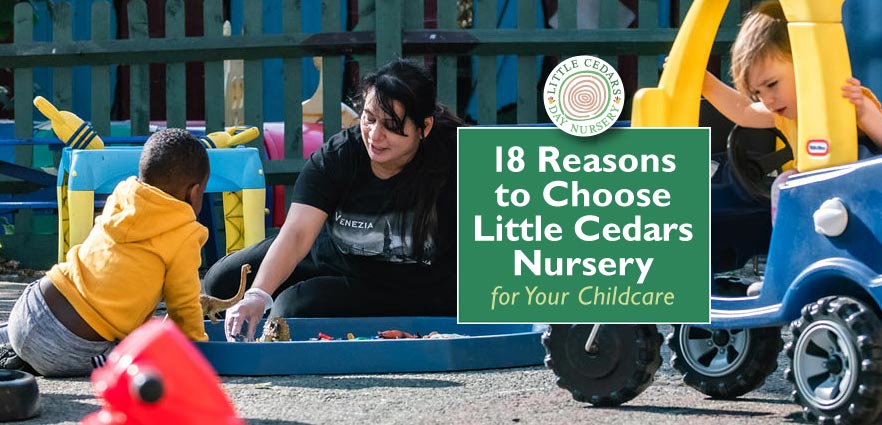
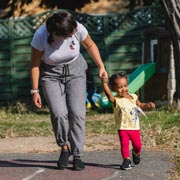 Independent feedback from other parents is worth its weight in gold. In the last five years, Little Cedars has received only 5-star reviews on Google and Facebook. That’s top marks, consistently for 5 years running.* Comments that accompanied these independent reviews were equally compelling — here are just a few examples:
Independent feedback from other parents is worth its weight in gold. In the last five years, Little Cedars has received only 5-star reviews on Google and Facebook. That’s top marks, consistently for 5 years running.* Comments that accompanied these independent reviews were equally compelling — here are just a few examples: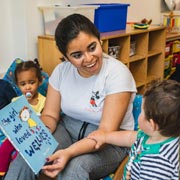 Little Cedars is a warm, welcoming and nurturing environment. To the babies and children, it very much becomes a home-from-home where they feel safe, valued, cared for and all with wonderful, close relationships with both peers and our childcare professionals. It’s also a place of immense fun where little ones are happy, stimulated and nurtured in order to bring out the best in them.
Little Cedars is a warm, welcoming and nurturing environment. To the babies and children, it very much becomes a home-from-home where they feel safe, valued, cared for and all with wonderful, close relationships with both peers and our childcare professionals. It’s also a place of immense fun where little ones are happy, stimulated and nurtured in order to bring out the best in them.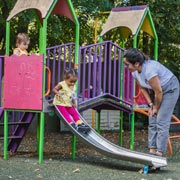 Little Cedars Nursery is extremely well resourced and equipped, both inside and out.
Little Cedars Nursery is extremely well resourced and equipped, both inside and out.  If your 2-year-old is eligible for the Government’s free childcare scheme for this age group, rest assured that Little Cedars Day Nursery supports them and this can potentially give your little one 15 free hours of childcare per week for as many as 38 weeks of the year. That’s 570 free childcare hours per year for your 2-year-old!
If your 2-year-old is eligible for the Government’s free childcare scheme for this age group, rest assured that Little Cedars Day Nursery supports them and this can potentially give your little one 15 free hours of childcare per week for as many as 38 weeks of the year. That’s 570 free childcare hours per year for your 2-year-old!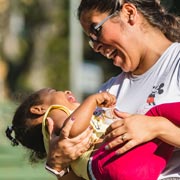 A Key Person is assigned to each child at Little Cedars Nursery. This is an early years practitioner who ensures that the child’s needs are being catered for and that their care at the setting is tailored to them as an individual. They help children settle in when they first join the nursery and build strong relationships with both the child and the parents. They are therefore usually the natural and key point of contact at the nursery.
A Key Person is assigned to each child at Little Cedars Nursery. This is an early years practitioner who ensures that the child’s needs are being catered for and that their care at the setting is tailored to them as an individual. They help children settle in when they first join the nursery and build strong relationships with both the child and the parents. They are therefore usually the natural and key point of contact at the nursery. We have a very special team at Little Cedars Nursery. Every one of them has been hand picked to ensure they are the perfect fit for the nursery and for the children therein. They’re warm, natural carers who will form wonderful relationships with children and bring out the very best in them. They become the children’s safe, familiar and friendly faces at the setting as well as facilitating top-notch learning and early years education. They also ensure every child is happy and is having fun whilst under our care.
We have a very special team at Little Cedars Nursery. Every one of them has been hand picked to ensure they are the perfect fit for the nursery and for the children therein. They’re warm, natural carers who will form wonderful relationships with children and bring out the very best in them. They become the children’s safe, familiar and friendly faces at the setting as well as facilitating top-notch learning and early years education. They also ensure every child is happy and is having fun whilst under our care.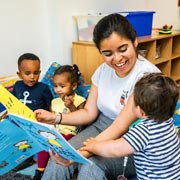 At Little Cedars we do so much more than simply look after babies, toddlers and under-fives. We educate and nurture them too. In fact, we ensure that our little ones achieve personal bests in all 7 areas of
At Little Cedars we do so much more than simply look after babies, toddlers and under-fives. We educate and nurture them too. In fact, we ensure that our little ones achieve personal bests in all 7 areas of 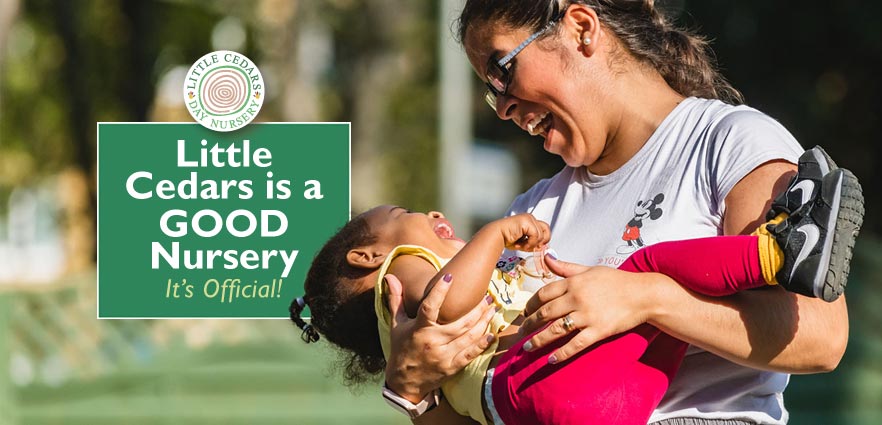
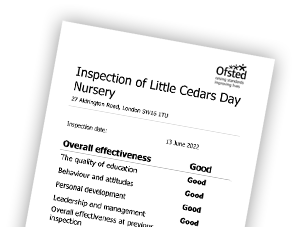 Here’s how Ofsted rate Little Cedars Nursery:
Here’s how Ofsted rate Little Cedars Nursery: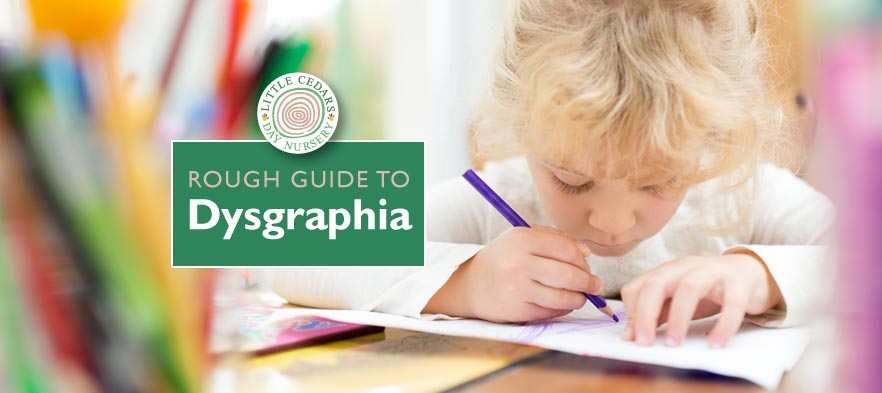
 We previously covered
We previously covered  Motor dysgraphia is primarily the result of poor fine motor skills and poor dexterity, making the control needed for legible writing or drawings difficult. It may also be the result of poor muscle tone. In contrast to dyslexic dysgraphia, motor dysgraphia may result in poor writing legibility even when the words are copied. Spelling, however, is not adversely affected. Short bursts with unusually high concentration levels may result in better letter and word formation, but the level of concentration needed to achieve this is unsustainable over a longer period.
Motor dysgraphia is primarily the result of poor fine motor skills and poor dexterity, making the control needed for legible writing or drawings difficult. It may also be the result of poor muscle tone. In contrast to dyslexic dysgraphia, motor dysgraphia may result in poor writing legibility even when the words are copied. Spelling, however, is not adversely affected. Short bursts with unusually high concentration levels may result in better letter and word formation, but the level of concentration needed to achieve this is unsustainable over a longer period. sgraphic children may also hold their writing instruments in an unusual way or have strange posture when writing;
sgraphic children may also hold their writing instruments in an unusual way or have strange posture when writing; Diagnosing Dysgraphia
Diagnosing Dysgraphia At education settings, additional bespoke learning strategies and interventions, that all teaching professionals can employ, may include:
At education settings, additional bespoke learning strategies and interventions, that all teaching professionals can employ, may include: Childcare/teaching professionals and parents/guardians should always work together and compare notes, so that all parties are fully informed about any challenges the child may have. By doing so, they can share strategies and each work with the child towards the same goals. It’s important to begin such work as early as possible, so that the impact of the disorder on the child’s life is minimised. Early diagnosis is therefore crucial.
Childcare/teaching professionals and parents/guardians should always work together and compare notes, so that all parties are fully informed about any challenges the child may have. By doing so, they can share strategies and each work with the child towards the same goals. It’s important to begin such work as early as possible, so that the impact of the disorder on the child’s life is minimised. Early diagnosis is therefore crucial. Childcare professionals at Little Cedars Nursery will support children with any learning disorders and disabilities as a matter of course. Although dysgraphia normally only manifests itself once children reach the age of about five, we will nevertheless watch out for possible signs during children’s pre-school years at the setting. If suspected, we’ll put in place a customised learning and development plan that will help them to overcome any challenges they may be facing. Our childcare staff, including our Special Educational Needs Co-ordinator (SENCo) will work with parents/guardians to support their children in the best way possible. Our aim is for each child to achieve personal bests in every area possible, so they’re ready and able for school when they leave us to begin their time in Reception year.
Childcare professionals at Little Cedars Nursery will support children with any learning disorders and disabilities as a matter of course. Although dysgraphia normally only manifests itself once children reach the age of about five, we will nevertheless watch out for possible signs during children’s pre-school years at the setting. If suspected, we’ll put in place a customised learning and development plan that will help them to overcome any challenges they may be facing. Our childcare staff, including our Special Educational Needs Co-ordinator (SENCo) will work with parents/guardians to support their children in the best way possible. Our aim is for each child to achieve personal bests in every area possible, so they’re ready and able for school when they leave us to begin their time in Reception year.